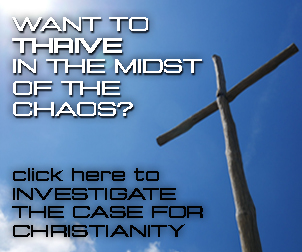I get the opportunity to train groups all the time and I relish the chance to talk about the nature of truth. I have been offering a “Truth Test” to these audiences across the country. I begin by describing the difference between “objective” truth (which is rooted in the nature of the object under consideration and transcends the opinions of any subject considering this object), and “subjective” truth (which is rooted in the opinions and beliefs of the subjects who hold them and vary from person to person). I provide several examples of truth claims and ask groups to tell me whether the claims are subjective or objective.
Objective vs. Subjective Truth Claims
As an example, I offer the proposition, “Jim’s work vehicle is a police car”. Is this an objective claim or a subjective claim? It is clearly objective. My work vehicle is either a police car or it is not, and my personal opinion will not change this fact. The truth is rooted in the nature of the object, the police car, and it is not dependent upon my subjective opinion. Now let’s examine another claim: “Police cars are the coolest (hippest) cars”. This second claim is highly personal depending on what each of us considers “hip” or “cool”. Our opinion about this is rooted in each of us as subjects who hold varying opinions about “hipness” or “coolness”. See the difference? In an even simpler example, “1+1=2” is an objective truth statement; “Math is fun” is a subjective claim. Get the difference?
Objective Spiritual Claims
But it seems to get trickier for people when they begin to move away from physical realities or math facts. Consider the following claim: “God exists”. Surprisingly, even many Christian groups I work with struggle to identify this statement as objective. But the existence of God is either a true reality or it is not, and our personal opinion is not going to change this reality. It is something we can either acknowledge or reject, but doing so does not change the reality of God’s existence. Does that make sense? Spiritual truth claims about the existence of God are objective, they are rooted in the object under consideration: God. He either exists or He does not; my opinion won’t change that fact.
Objective Moral Claims
At some point toward the end of my “Truth Test,” I will begin to post moral claims such as, “Pre-marital sex is morally wrong.” Now things usually get interesting as the Christians in our groups struggle to decide if there are such things as objective moral claims. Some are very uncomfortable identifying this statement as an objective truth claim. It’s one thing to say that we might believe this statement to be true, but some hesitate to say this is a truth claim that transcends those who don’t accept our values. The culture has effectively eroded our confidence in objective moral truth claims. The new cultural definition of “tolerance” obliges us to embrace all truth claims as equally valid or true. This is an important re-definition, because classic “tolerance” acknowledges disagreement and allows each person to hold an opposing view without having to embrace the other view as equally true. Classic tolerance requires us to endure and respect the people who hold opposing views, even as we resist these views themselves.
As a result, those of us who fail to respect and retain the classic definition of tolerance are far more likely to deny the existence of objective moral truth claims. That’s why it’s so important for us to be able to provide evidence of such claims. If there are examples of moral claims that transcend time, individuals and culture, we’ve got evidence of transcendent objective moral truth. Let me offer such evidence.
There are many examples of moral behaviors that must be interpreted within a situational context in order to determine their “rightness” or “wrongness”. Consider these important moral questions: Is stealing wrong? (What if you are stealing the detonation code to a terrorist’s nuclear bomb that would otherwise kill millions of innocent people?) Is it wrong to lie? (What if I have to lie to accomplish the theft of the very same code?) See the problem? There are many classically “immoral” behaviors that could be rendered moral if the circumstances were different! But once we add a simple expression to the end of our moral questions, everything changes. Is it ever morally right to steal for the fun of it? Is it ever right to lie for the fun of it? The mere goal of experiencing joy (or fun) is NEVER proper justification for doing what would otherwise be considered immoral or wrong. As a police officer, there are times when I may be justified in using deadly force, but I am NEVER justified in taking a life for the mere fun of it. When we add these few words to the end of our moral questions we discover a plethora of objective moral truth claims that transcend time and culture. It is NEVER right, regardless of location or time in history) to lie, steal, cheat, kill (etc., etc., etc.) for the mere fun of it. If we can provide evidence that objective truth claims such as these are a reality in our universe, we must eventually account for such objective, transcendent moral laws. Share on X
If there is evidence that objective truth claims such as these are a reality in our universe, we must eventually account for such objective, transcendent moral laws. Precisely what kind of transcendent moral lawgiver is required if these kinds of moral laws exist? As police officers, are we merely enforcing the subjective laws of our culture? Or is rape, robbery and burglary wrong regardless of culture or personal opinion. Our work every day should open our eyes to the existence of an objective, transcendent Moral Law Giver. We have been enforcing His laws all along, even when we have sometimes been rejecting His existence. That’s why cops need to know the difference between objective and subjective truths. Let’s acknowledge that we are advancing the cause of God in our communities, as we recognize the source of the laws we enforce.
 For more information about the scientific and philosophical evidence pointing to a Divine Creator, please read God’s Crime Scene: A Cold-Case Detective Examines the Evidence for a Divinely Created Universe. This book employs a simple crime scene strategy to investigate eight pieces of evidence in the universe to determine the most reasonable explanation. The book is accompanied by an eight-session God’s Crime Scene DVD Set (and Participant’s Guide) to help individuals or small groups examine the evidence and make the case.
For more information about the scientific and philosophical evidence pointing to a Divine Creator, please read God’s Crime Scene: A Cold-Case Detective Examines the Evidence for a Divinely Created Universe. This book employs a simple crime scene strategy to investigate eight pieces of evidence in the universe to determine the most reasonable explanation. The book is accompanied by an eight-session God’s Crime Scene DVD Set (and Participant’s Guide) to help individuals or small groups examine the evidence and make the case.
J. Warner Wallace is a Dateline featured cold-case homicide detective, popular national speaker and best-selling author. He continues to consult on cold-case investigations while serving as a Senior Fellow at the Colson Center for Christian Worldview. He is also an Adj. Professor of Christian Apologetics at Talbot School of Theology, Biola University, and a faculty member at Summit Ministries. J. Warner presently serves as a chaplain for his agency and holds a BA in Design (from CSULB), an MA in Architecture (from UCLA), and an MA in Theological Studies (from Gateway Seminary).













































Pingback: Are claims about religion and morality objective or subjective? « Wintery Knight
Pingback: Objective Truth Is One Thing, But Objective Moral Truth Is Another « Ratio Christi-At The Ohio State University
Pingback: My Homepage
Pingback: jfd98ayhcim
Pingback: » Objective Truth Is One Thing, But Objective Moral Truth Is Another Somewhere Between Faith & Reason
Pingback: If Moral Decisions Are Dependent on Circumstances, Are There No Objective Moral Truths? | Cold Case Christianity
Pingback: Moral Absolutes | Lamb's Harbinger
Pingback: What’s the Difference Between Heresy and Orthodoxy? | Apologetics ForumApologetics Forum
Pingback: Subjective and Objective Truth and Knowing the Difference – UNBOXING FAITH
Pingback: I. SCIENCE I. Origin of Man, Evolution Style: Homo Ergaster | Truthopia
Pingback: Cops Need to Know the Difference Between Subjective Opinions and Objective Truths – The Thin Blue Life – Reformed faith salsa style